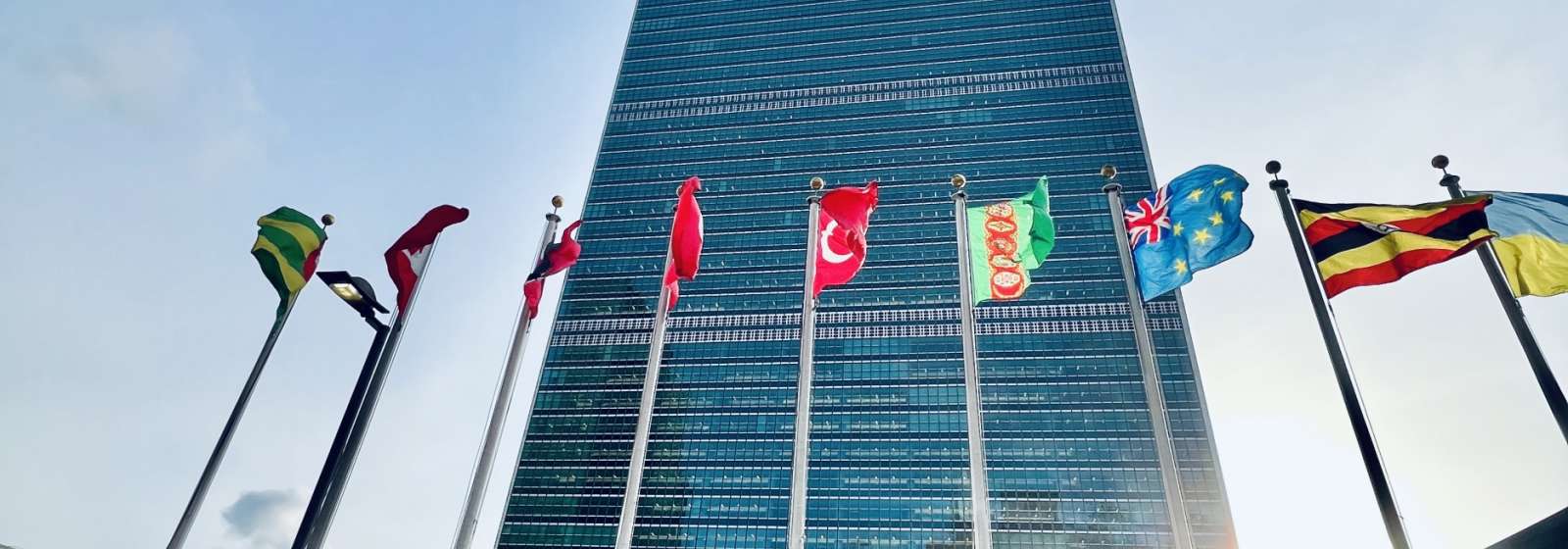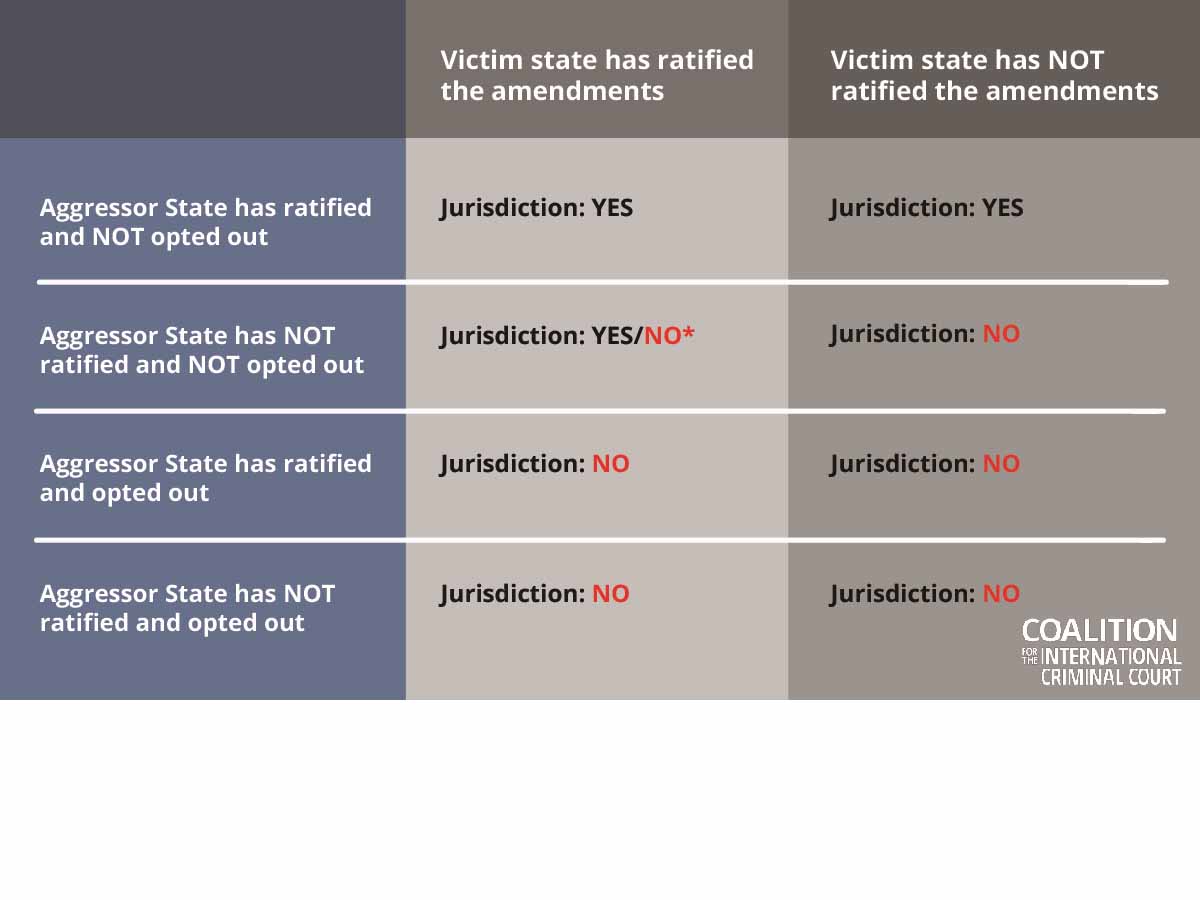What is the crime of aggression?
In essence, the crime of aggression is when one country uses armed force against another country without legal justification.
While the crime of aggression was one of the four crimes listed in the Rome Statute when the treaty was adopted in 1998, the completion of the definition and provisions of jurisdiction were postponed for further negotiation.

Three facts on the crime of aggression

It focuses on the most responsible: leaders.

It applies to individuals, not states.

It may be the fourth core crime tried at the ICC.
How was the definition decided?

The crime of aggression defined
Article 8bis, paragraph 1 defines the crime of aggression as "the planning, preparation, initiation or execution, by a person in a position effectively to exercise control over or to direct the political or military action of a State, of an act of aggression which, by its character, gravity and scale, constitutes a manifest violation of the Charter of the United Nations."
The act of aggression means "the use of armed force by a State against the sovereignty, territorial integrity or political independence of another State, or in any other manner inconsistent with the Charter of the United Nations."
These acts can include, among others, invasion, military occupation, and annexation by the use of force, blockade by the ports or coasts.

ASP Special Session – July 2025
The ICC Assembly of States Parties convened a Special Session from 7 - 9 July 2025, in order to review the Kampala Amendments on the crime of aggression.
The Special Session took place at United Nations Headquarters, in New York, USA.
Civil society addresses the Assembly of States Parties:
General debate
Plenary on Lessons Learnt
Closing plenary
How is ICC jurisdiction applied over the crime of aggression?
The amendments on the crime of aggression enter into force for a state one year after its ratification or acceptance by that state.
Even if ICC member states activate ICC jurisdiction over the crime of aggression, the option to “opt-out” of the Court’s exercise of that jurisdiction in non-UN Security Council referral situations does exist.
The reported view held by the plurality of ICC member states is that once the two conditions (ratification by at least 30 ICC member states and the decision by the ASP) are met, the Court’s exercise of the jurisdiction over the crime of aggression applies to all ICC member states (unless an opt out declaration has been submitted), regardless of individual ratification status of the amendments.
An alternate view has also been advanced stating that the Court’s exercise of jurisdiction over the crime of aggression only applies to the ICC member states who have ratified the amendments.
Table of jurisdictional regime of the Crime of Aggression applicable to Rome Statute states parties

Three ways the ICC can currently exercise jurisdiction
The Crime of Aggression has a unique jurisdictional regime, which cannot be triggered in the same manner as with other crimes of the Rome Statute (genocide, crimes against humanity and war crimes). The Court may exercise jurisdiction over the crime either by:
-
An ICC member state referring a situation to the Court.
-
The prosecutor initiating an investigation proprio motu.
-
UN Security Council referring the situation to the Court.
Except in the case of UN Security Council referrals, non-ICC member states are excluded from the Court’s jurisdiction over the crime of aggression, regardless of victim or aggressor status.

